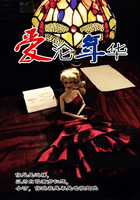"Set out the matter," said the mother of Jeekie, who was by no means so foolish as she seemed.
So they told her what she must do, namely, travel down to the Ogula and tell them of the plight of their chief, bidding them muster all their fighting men and when the swamps were dry enough, advance as near as they dared to the Asiki country and, if they could not attack it, wait till they had further news.
The end of it was that the mother of Jeekie, who knew her case to be desperate at home, where she was in no good repute, promised to attempt the journey in consideration of advantages to be received.
Since she was to be turned adrift to meet her fate with as much food as she could carry, this she could do without exciting any suspicion, for who would trouble about the movements of a useless old thief?
Meanwhile Jeekie gave her one of the robes which the Asika had provided for Alan, also various articles which she desired and, having learned Fahni's message by heart and announced that she considered herself his affianced bride, the gaunt old creature departed happy enough after exchanging embraces with her long lost son.
"She will tell somebody all about it and we shall only get our throats cut," said Alan wearily, for the whole thing seemed to him a foolish farce.
"No, no, Major. I make her swear not split on ghosts of all her husbands and by Big Bonsa hisself. She sit tight as wax, because she think they haunt her if she don't and I too by and by when I dead.
P'raps she get to Ogula country and p'raps not. If she don't, can't help it and no harm done. Break my heart, but only one old woman less.
Anyhow she hold tongue, that main point, and I really very glad find my ma, who never hoped to see again. Heaven very kind to Jeekie, give him back to family bosom," he added, unctuously.
That day there were no excitements, and to Alan's intense relief he saw nothing of the Asika. After its orgy of witchcraft and bloodshed on the previous night, weariness and silence seemed to have fallen upon the town. At any rate no sound came from it that could be heard above the low, constant thunder of the great waterfall rushing down its precipice, and in the cedar-shadowed garden where Alan walked till he was weary, attended by Jeekie and the Ogula savages, not a soul was to be seen.
On the following morning, when he was sitting moodily in his room, two priests came to conduct him to the Asika. Having no choice, followed by Jeekie, he accompanied them to her house, masked as usual, for without this hateful disguise he was not allowed to stir. He found her lying upon a pile of cushions in a small room that he had never seen before, which was better lighted than most in that melancholy abode, and seemed to serve as her private chamber. In front of her lay the skin of the lion that he had sent as a present, and about her throat hung a necklace made of its claws, heavily set in gold, with which she was playing idly.
At the opening of the door she looked up with a swift smile that turned to a frown when she saw that he was followed by Jeekie.
"Say, Vernoon," she asked in her languorous voice, "can you not stir a yard without that ugly black dog at your heels? Do you bring him to protect your back? If so, what is the need? Have I not sworn that you are safe in my land?"
Alan made Jeekie interpret this speech, then answered that the reason was that he knew but little of her tongue.
"Can I not teach it to you alone, then, without this low fellow hearing all my words? Well, it will not be for long," and she looked at Jeekie in a way that made him feel very uncomfortable. "Get behind us, dog, and you, Vernoon, come sit on these cushions at my side. Nay, not there, I said upon the cushions--so. Now I will take off that ugly mask of yours, for I would look into your eyes. I find them pleasant, Vernoon," and without waiting for his permission, she sat up and did so. "Ah!" she went on, "we shall be happy when we are married, shall we not? Do not be afraid, Vernoon, I will not eat out your heart as I have those of the men that went before you. We will live together until we are old, and die together at last, and together be born again, and so on and on till the end which even I cannot foresee. Why do you not smile, Vernoon, and say that you are pleased, and that you will be happy with me who loved you from the moment that my eyes fell upon you in sleep? Speak, Vernoon, lest I should grow angry with you."
"I don't know what to say," answered Alan despairingly through Jeekie, "the honour is too great for me, who am but a wandering trader who came here to barter Little Bonsa against the gold I need"--to support my wife and family, he was about to add, then remembering that this statement might not be well received, substituted, "to support my old parents and eight brothers and sisters who are dependent upon me, and remain hungry until I return to them."
"Then I think they will remain hungry a long time, Vernoon, for while I live you shall never return. Much as I love you I would kill you first," and her eyes glittered as she said the words. "Still," she added, noting the fall in his face, "if it is gold that they need, you shall send it them. Yes, my people shall take all that I gave you down to the coast, and there it can be put in a big canoe and carried across the water. See to the packing of the stuff, you black dog," she said to Jeekie over her shoulder, "and when it is ready I will send it hence."
Alan began to thank her, though he thought it more than probable that even if she kept her word, this bullion would never get to Old Calabar, and much less to England. But she waived the matter aside as one in which she was not interested.
"Tell me," she asked; "would you have me other than I am? First, do you think me beautiful?"
"Yes," answered Alan honestly, "very beautiful when you are quiet as now, not when you are dancing as you did the other night without your robes."
When she understood what he meant the Asika actually blushed a little.
"I am sorry," she answered in a voice that for her was quite humble.















